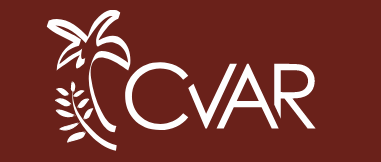
Όπως υπογραμμίζει η Νέα Ευρωπαϊκή Ατζέντα για τον Πολιτισμό, απαιτείται η υιοθέτηση τεχνολογικών εργαλείων και καινοτόμων προσεγγίσεων για να αναζωογονήσει και να επιφέρει μια τόσο αναγκαία εξέλιξη στον πολιτιστικό τομέα. Τα μουσεία είναι βασικός πυλώνας του Πολιτιστικού Τομέα, που έχει τεράστια σημασία για την ΕΕ ως βασική εκπροσώπηση και προαγωγός της πολιτιστικής κληρονομιάς της, καθώς και βασικός συντελεστής της οικονομίας και της ανάπτυξης της Ένωσης. Ως εκ τούτου, είναι αναγκαίο λοιπόν, να λάβουν μέτρα για την ψηφιοποίηση των δραστηριοτήτων τους και να αναδιαμορφώσουν τον τρόπο που προσελκύουν τους επισκέπτες τους. Αυτές οι πραγματικότητες και οι ανάγκες ήταν εμφανείς εδώ και πολλά χρόνια, αλλά έχουν γίνει ακόμα πιο επιτακτικές από την πανδημία του COVID-19 με την ευρεία επίδρασή της σε όλες τις πτυχές της ζωής που, μεταξύ άλλων, τόνισαν την ανάγκη για ψηφιακή μετάβαση οργανισμών, ιδρυμάτων και βιομηχανιών.
Ως εκ τούτου, τα μουσεία και τα πολιτιστικά ιδρύματα χρειάζεται να υιοθετήσουν καινοτόμες τεχνολογίες για να αναδιαμορφώσουν τον τρόπο με τον οποίο διεξάγονται οι εργασίες τους, αυξάνοντας την εμπειρία που προσφέρουν στο κοινό τους και ενισχύοντας την ικανότητά τους να προσελκύουν νεότερες γενιές.
Επισκόπηση έργου
Όπως υπογραμμίζει η Νέα Ευρωπαϊκή Ατζέντα για τον Πολιτισμό, απαιτείται ο εναγκαλισμός τεχνολογικών εργαλείων και καινοτόμων προσεγγίσεων για να αναζωογονήσει και να επιφέρει μια τόσο αναγκαία εξέλιξη στον πολιτιστικό τομέα. Τα μουσεία είναι βασικός πυλώνας του Πολιτιστικού Τομέα, που έχει τεράστια σημασία για την ΕΕ ως βασική εκπροσώπηση και προαγωγός της πολιτιστικής κληρονομιάς της, καθώς και βασικός συντελεστής της οικονομίας και της ανάπτυξης της Ένωσης. Πρέπει λοιπόν, να λάβουν μέτρα για την ψηφιοποίηση των δραστηριοτήτων τους και να αναδιαμορφώσουν τον τρόπο που προσελκύουν τους επισκέπτες τους. Αυτές οι πραγματικότητες και οι ανάγκες ήταν εμφανείς εδώ και πολλά χρόνια, αλλά έχουν γίνει ακόμα πιοαπό την πανδημία του COVID-19 με την ευρεία επίδρασή της σε όλες τις πτυχές της ζωής που, μεταξύ άλλων, τόνισαν την ανάγκη για ψηφιακή μετάβαση οργανισμών, ιδρυμάτων και βιομηχανιών.
Ως εκ τούτου, τα μουσεία και τα πολιτιστικά ιδρύματα πρέπει να υιοθετήσουν καινοτόμες τεχνολογίες για να αναδιαμορφώσουν τον τρόπο με τον οποίο διεξάγονται οι εργασίες τους, αυξάνοντας την εμπειρία που προσφέρουν στο κοινό τους και ενισχύοντας την ικανότητά τους να προσελκύουν και να προσελκύουν νεότερες γενιές.

Σκοπός και Στόχοι
Το MuseumAR σχεδίασε και ανέπτυξε ένα ολοκληρωμένο ψηφιακό οδηγό αφιερωμένο στους επαγγελματίες εκπαιδευτές αλλά και τους εκπαιδευόμενους.
Το MuseumAR ανέπτυξε επίσης μια εμπειρία αφήγησης (storytelling) επαυξημένης πραγματικότητας (AR) που μπορεί να δοκιμαστεί και να υιοθετηθεί από μουσεία σε ολόκληρη την ΕΕ. Ακόμη το πλήρως ανεπτυγμένο εκπαιδευτικό υλικό που αναπτύχθηκε μπορεί να χρησιμοποιηθεί από μουσεία και ιδρύματα εκπαίδευσης ενηλίκων για την κατάρτιση του προσωπικού τους και των νέων επαγγελματιών που ενδιαφέρονται να ακολουθήσουν καριέρα στον τομέα.
Για την αντιμετώπιση του κενού και των αναγκών του τομέα του έργου, το MuseumAR κατάφερε να επιτύχει τους ακόλουθους στόχους:
- Εισήγαγε τους εκπαιδευτές ενηλίκων και τους επαγγελματίες των μουσείων στις δυνατότητες της AR ως εργαλείο αφήγησης ιστοριών και τους βοήθησε να αναπτύξουν την ικανότητα να εκπαιδεύουν επαγγελματίες και νέους πτυχιούχους στην αξιοποίησή της
- Δημιούργησε συνέργειες μεταξύ της εκπαίδευσης και του πολιτισμού που διευκολύνονται από τις νέες τεχνολογίες
- Δημιούργησε την ικανότητα στους εργαζόμενους στα μουσεία και στους νέους πτυχιούχους να συνεργάζονται με τους ειδικούς της τεχνολογίας με τρόπο που θα ανανεώσει τον τρόπο λειτουργίας των ιδρυμάτων αυτών και την εμπλοκή των επισκεπτών τους
- Ενδυνάμωσε τα μουσεία και τα πολιτιστικά ιδρύματα να υιοθετήσουν καινοτόμα τεχνολογικά εργαλεία για να προσελκύσουν το κοινό τους και να παρουσιάσουν τη συλλογή τους

Αποτελέσματα

Επαυξημένη Πραγματικότητα και Μάθηση στα Μουσεία Πρόγραμμα Σπουδών και Εκπαιδευτικό Υλικό
Ένα πρόγραμμα σπουδών που αφορά στην εκπαίδευση εκπαιδευτών ενηλίκων, εκπαιδευτών, επαγγελματιών μουσείων και όσων εργάζονται με νέους ανθρώπους σε θέματα Επαυξημένης Πραγματικότητας
Σχέδια μαθήματος - Εκπαιδευτές

Ένα ψηφιακό βιβλιάριο με ιστορίες επαυξημένης πραγματικότητας
Ένα εγχειρίδιο που στοχεύει στην εκπαίδευση εκπαιδευτών ενηλίκων και επαγγελματιών των μουσείων για το πώς να σχεδιάσουν, να αναπτύξουν και να χρησιμοποιήσουν δραστηριότητες AR στις διδακτικές και λοιπές εργασιακές πρακτικές

Μαζικό ανοιχτό διαδικτυακό μάθημα (MOOC) για την προώθηση της ψηφιακής πολιτιστικής κληρονομιάς
MOOC με 5 εκπαιδευτικές ενότητες διαθέσιμες για όλους, οι περισσότερες από αυτές χωρίς
προαπαιτούμενα εισόδου.








